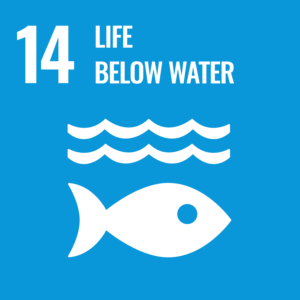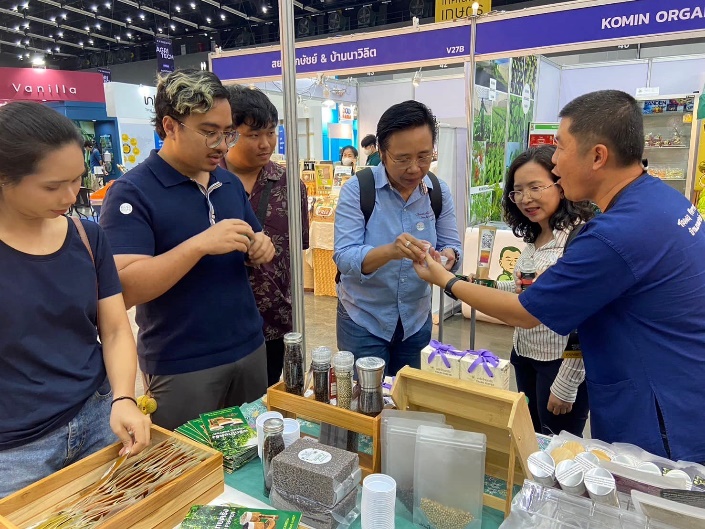Reporter: Dr. Chanyut Sudtongkong
Evidence Date: July 12, 2024
Related SDGs: SDG 14
Related Indicator: 14.5.5
Research and Innovation
Internet of Thing Based System for Watershed Management
October 31, 2025
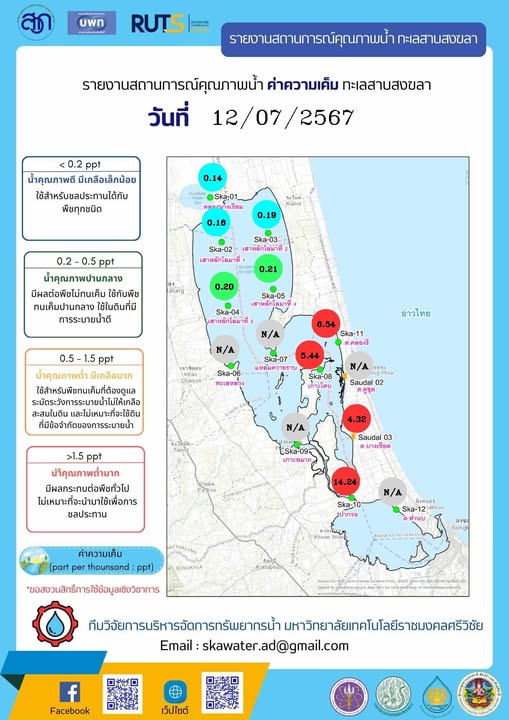
The Songkhla Lake Basin, the largest freshwater system in Thailand, extends over approximately 11,991 square kilometers and encompasses areas within Songkhla, Phatthalung, and Nakhon Si Thammarat provinces. This complex lagoonal ecosystem, where freshwater from rainfall, canals, and river inflows converges with seawater, is highly sensitive to seasonal fluctuations in salinity. In recent years, the rise in sea level has exacerbated seawater intrusion, particularly during the dry season. The resulting increase in salinity has led to the degradation of freshwater habitats, a decline in biodiversity, reduced aquatic productivity, and significant disruptions to agricultural activities in adjacent communities.
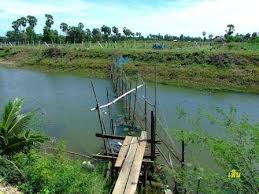
To mitigate these challenges, Rajamangala University of Technology Srivijaya (RUTS) has implemented a project aimed at enhancing water resource management through the application of Internet of Things (IoT) technology. The initiative focuses on the development of an IoT-based salinity warning system designed to forecast both the timing and extent of seawater intrusion, thereby facilitating proactive management and mitigation measures. The system employs real-time salinity sensors that transmit water quality data at two-hour intervals, enabling continuous monitoring of salinity dynamics across the basin. Additionally, automated sensors record environmental parameters such as temperature, humidity, and rainfall, with data made accessible to users through the LINE application.
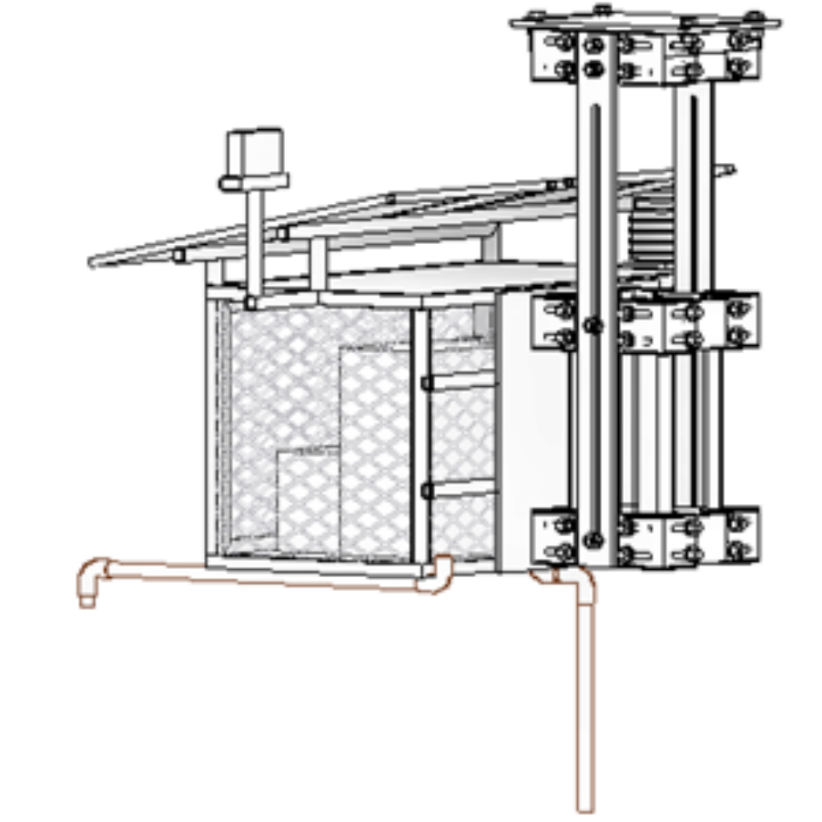
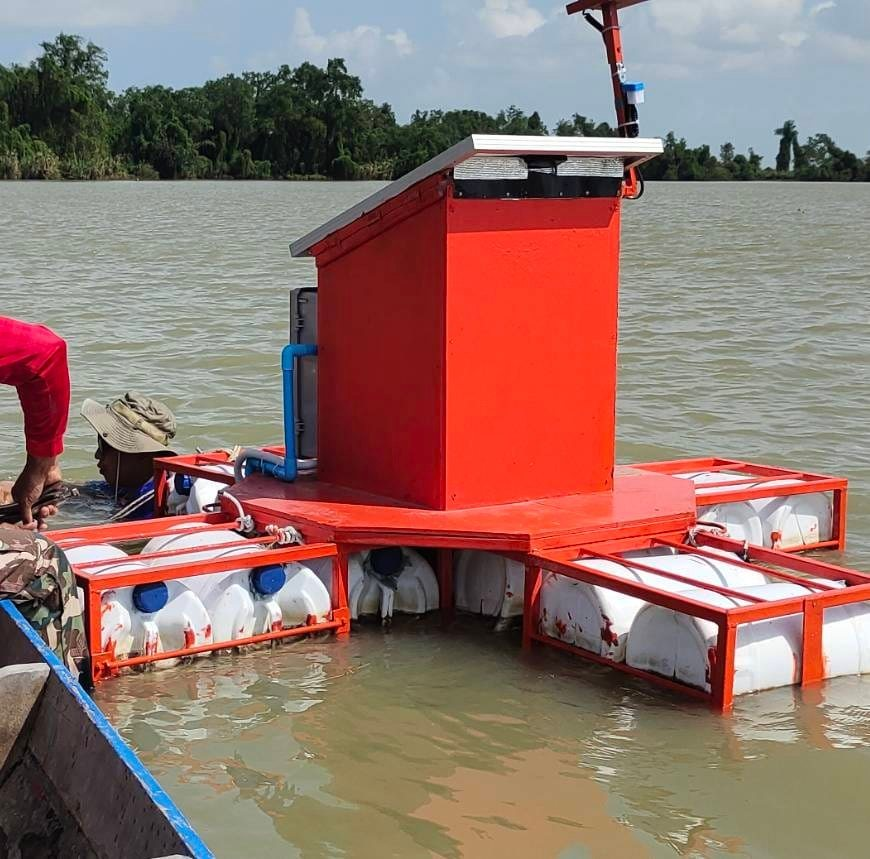
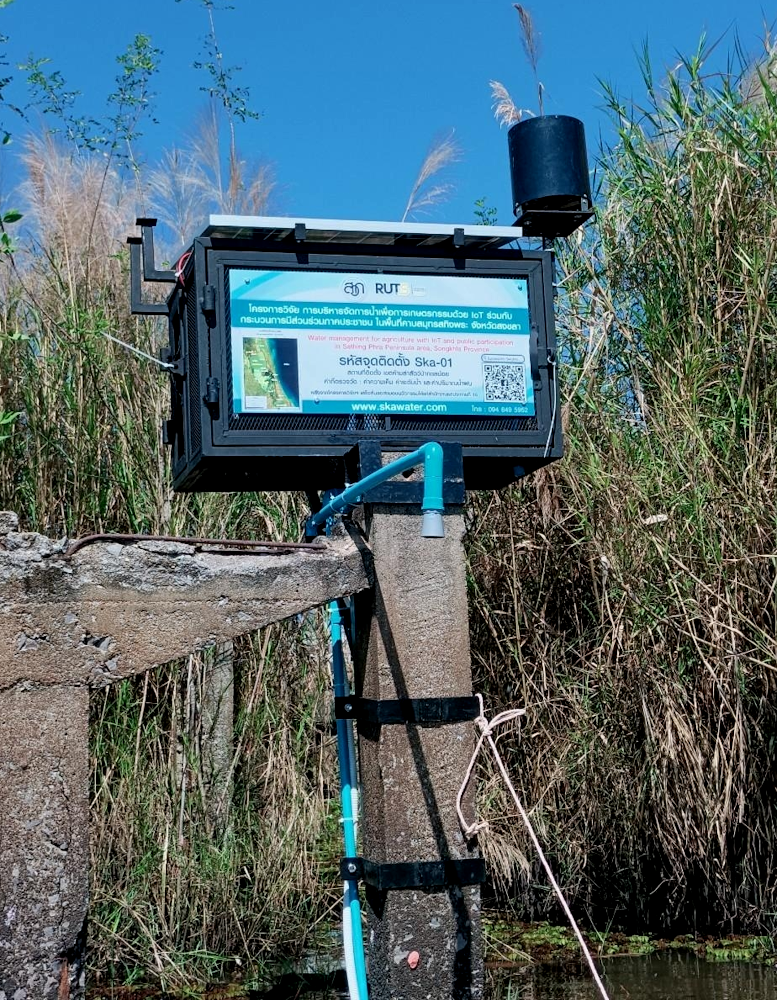
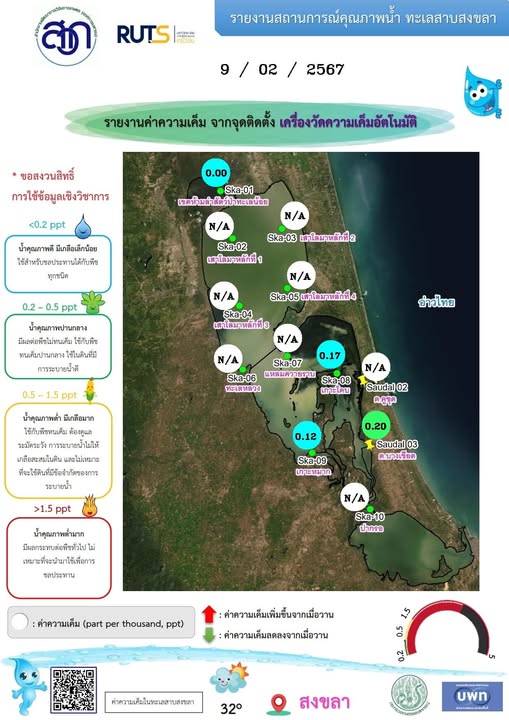
Complementing the technological interventions, RUTS has organized capacity-building programs to strengthen local expertise in equipment maintenance and promote sustainable agricultural practices, including alternate wetting and drying (AWD) rice cultivation, which contributes to water conservation. These initiatives have empowered government agencies and farmer networks to utilize real-time salinity data, implement water-saving strategies, and independently maintain monitoring equipment. Furthermore, RUTS has expanded information dissemination through social media platforms to enhance communication, coordination, and community participation in the integrated management of water resources within the Songkhla Lake Basin.
Related Links:

